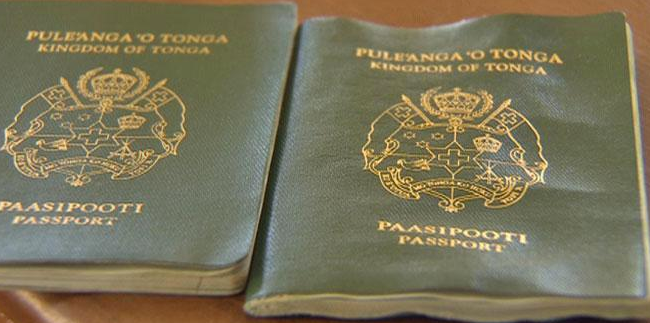
Why corruption must cease?
All over the world as developing nations struggle to show positive growth in their fragile economies, they face corruption as the chief impediment to growth.
What is true worldwide is very much the reality in the Pacific region, that in developing nations, corruption is the single greatest problem to economic development.
The impact on the poor is devastating because as income increases in certain sectors, the poor gets poorer in so many developing nations in the Pacific.
There are many forms by which corruption is practiced in many nations, but it essentially comes down to the illegitimate practice or irregularity in carrying out one’s official duties, usually for financial benefit, but not ruling out other benefits as well.
In Papua New Guinea (PNG) for example, Asia Development Bank (ADB) reveals: ‘Despite improvements in the business environment over the last decade, law and order and corruption remain the most severe constraints to doing business.’
Observers in PNG are concerned that as the country enjoys incredibly huge revenue from its petroleum and gas resources, the plight of the poor seems to be far worse than ever.
There were 130 firms surveyed in PNG, and they confirm crime and corruption still contribute significantly to business costs.
“When development funds are diverted or misused, people with real needs are deprived of basic services, rights and opportunities,” said Claire Wee, Head of ADB’s Office of Anti-corruption and Integrity (OAI).
ADB claims it has zero tolerance of corruption.
In their 2012 annual report, OAI reported a record 240 complaints in 2012, and the opening of 114 new investigations. Sanctions were imposed on a total of 42 firms and 38 individuals.
The bulk of complaints involved fraudulent misrepresentations about qualification, experience, and technical capabilities of consulting firms, contractors and individuals seeking work from ADB.
A total of 57 firms and 51 individuals were barred from seeking ADB financed contracts.
Recently in the Kingdom of Tonga, a passport scandal reared its head, with the same ugly stench of the illegal sales of passports in the late-1980s.
Over US$35 million was collected from the illegal sale of passports from the late 1980s to the early 1990s.
US$26 million of the passport money was deposited in a Tonga Trust Fund in the United States, which later disappeared through the fund management of a man by the name of Jesse Bogdonoff, a friend of the king, and appointed entrusted with the investment of the passport funds.
The story of this earlier passport scandal and the consequences is well documented.
But it was recently revealed in an exchange of emails among officials of Foreign Affairs and the Prime Minister’s Office, that they were directed in 2012 by the Prime Minister, Lord Tu’ivakano to issue a diplomatic passport to a Chinese businessman ‘or suffer the consequences.’
The officials were apparently hesitant in issuing the passport because in a conversation held by His Majesty King Tupou VI, he directed not to issue any more passports to this Chinese businessman.
Apparently, the Chinese businessman, Mr Sien Lee, had been issued five diplomatic passports previously, two he claims to have been lost, which is why he wanted another one.
He also requested a diplomatic passport for his wife, which the Prime Minister, who is also the Minister of Foreign Affairs, gave approval.
The Office of the Auditor General, which conducted the auditing of the passport issuances and records, expressed concern about the possible illegality of the action by the Prime Minister.
It was highly irregular. The auditors could not find any certificates of naturalization belonging to the Lees, which are a requirement for passport issuance, let alone issuing a diplomatic passport.
Furthermore, Mr Sien Lee and his wife do not work for the government of Tonga, neither are they in any service to the Ministry of Foreign Affairs.
According to correspondence from Mr Lee on why his wife needed a diplomatic passport, he gave the reason of ‘convenience for travel.’
When the Prime Minister was later questioned by one of his workers on the issuance of the diplomatic passports, he said the Chinese couple were friends of the Queen Mother, Halaevalau Mata’aho, and the late king, Taufa’ahau Tupou IV.
No details were given for any payments made for the issuance of the passports, and still a lot more unanswered questions.
While this is going on in relation to the issuance of diplomatic passports to Chinese, there are former Immigration workers who are charged and await trials for illegal sale of passports to Chinese.
In a period of 16 months from mid-2011 to 2013, Tonga collected almost $4 million from passport and visa sales. These were included in the auditor’s report.
Millions more are ill gotten from the illegal sale of Tongan passports, mostly to Chinese. Very few cases are caught and reported.
There is no anti-corruption office in Tonga or an ombudsman.

